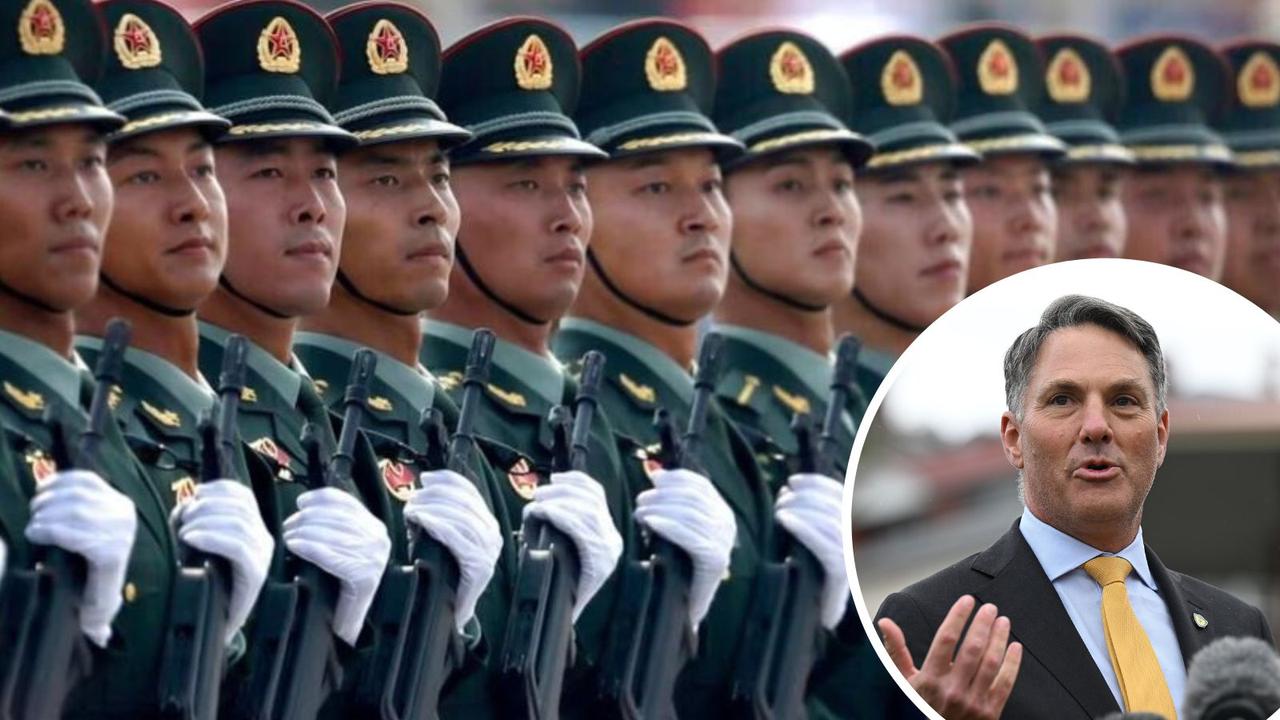[ad_1] China’s rapid military build-up is not only the biggest the world has seen since the end of World War II – it is also one of the most sophist
[ad_1]
China’s rapid military build-up is not only the biggest the world has seen since the end of World War II – it is also one of the most sophisticated and is threatening Australia’s physical connections to the world, Richard Marles has warned.
The Defence Minister has revealed the United States is relying heavily on Australia to lead efforts in countering China’s rise by forging key security partnerships with Pacific nations.
The US will sign a major security deal with Papua New Guinea when President Joe Biden makes a historic visit to the island nation next week, signalling a major shift in American foreign policy that puts a huge focus on some of Australia’s closest neighbours.
“The Pacific is an area where America looks to Australia for leadership,” Mr Marles told News Corp Australia in an exclusive interview.
“I’ve had numerous conversations with US counterparts over a long period of time … where America really did look to Australia for leadership about the role it should play within the Pacific, and obviously we have been really encouraging America to play a bigger role, and now that we are seeing that happen I think it’s really exciting.”
Mr Biden will become the first sitting US president in history to visit PNG next week, before arriving in Australia for the Quad leaders meeting.
The US President will sign a Defence Cooperation Agreement with PNG during his visit, in efforts to suppress Chinese influence in the region.
Beijing struck a contentious security pact with the Solomon Islands in April 2022 under the Coalition’s watch. It proved to be a major flashpoint as it sparked frenzied concern among White House officials.
Mr Biden’s deal with PNG will be a major boost for Australia’s plans to further deepen ties in the Pacific, but will likely draw a furious response from the Chinese communist government.
It will also carry personal significance for Mr Biden, as his uncle died on the island nation in World War II.
How Australia remains the security partner of choice for Pacific countries, such as PNG, is “at the heart” of the federal government’s foreign policy strategy, Mr Marles says.
“I am confident that Australia is the security partner of choice for countries in the Pacific, but that said, I don’t for a moment think we can take that status for granted … we’ve got to put in the work,” he said.
The Defence Minister said China’s military build-up was the “biggest since the end of the Second World War” and imperilled Australia’s physical connections to the world – shipping routes and undersea cables.
“This is sophisticated, there’s quantity and quality. This is a hi-tech, highly capable military build-up, both conventional and nuclear,” he said.
“Ships transport product to and from Australia and those shipping lanes and movements are at the heart of our way of life. They are literally the bloodstream of our existence, so it is really important that they are protected.”
Australia’s plans to acquire a fleet of nuclear-powered submarines remains a “fundamental element” of responding to China’s rise and protecting Australia’s shipping lanes and undersea cables, but Mr Marles says it’s not the most important part of the government’s strategy.
“The frontline of our engagement with the world has to be diplomacy … with an aim of trying to create pathways for peace,” he said.
Mr Marles will issue a war cry to hi-tech industries at a keynote address to the American Chamber of Commerce in Adelaide on Wednesday, calling on the rapid development of quantum computing, artificial intelligence and hypersonic missiles under “Pillar Two” of the AUKUS security pact.
“If we are to develop these advanced capabilities, we need to adopt an innovation mindset – one where we are not afraid to fail fast, learn, and adapt,” he will say.
Originally published as Staring down China: Defence Minister Richard Marles explains why Australia is taking the lead in the Pacific
[ad_2]
Source link



COMMENTS